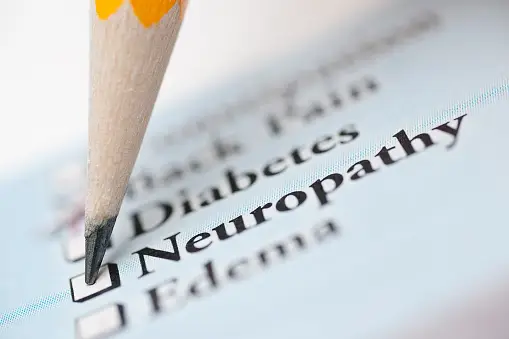Neuropathy is a disorder affecting peripheral nerves, resulting from damage or dysfunction, leading to abnormal sensations or motor impairments. Symptoms include tingling, numbness, burning pain, weakness, and loss of coordination in the hands and feet. Effective coping strategies can help reduce discomfort and improve your quality of life. Here are four coping skills for neuropathy pain management:
1. Medication
A neuropathic pain specialist prescribes anti-seizure medications such as pregabalin and gabapentin to manage soreness. These medications work by stabilizing electrical activity in the brain and nerves, which can help reduce pain sensations. Antidepressants such as nortriptyline and duloxetine help modulate pain signals in the brain and spinal cord.
Your healthcare provider prescribes medications based on the type and severity of your neuropathic pain. This may involve starting with a low dose and increasing it gradually until the optimal dose is reached to provide adequate pain relief. Routine monitoring and follow-up appointments allow the professional to assess your response to treatment and adjust your medication regimen effectively.
2. Peripheral Nerve Stimulation
Peripheral nerve stimulation involves the implantation of a small device that delivers electrical impulses to peripheral nerves. These electrical impulses interfere with or block pain signals traveling along the nerves, reducing or alleviating pain. A specialist implants temporary leads near the targeted peripheral nerves using a minimally invasive procedure.
The pain management professional connects the leads to an external pulse generator, which the patient wears outside the body. Patients can adjust the settings of the external pulse generator under the guidance of a specialist to optimize pain relief. If the treatment is successful and the patient experiences significant pain relief, a professional may place a permanent stimulator.
3. Physical Therapy
Neuropathic pain specialists can refer you to a physical therapist for personalized treatment. A physical therapist recommends exercises focused on improving strength, flexibility, balance, and coordination, which minimize pain and enhance physical function. They can incorporate resistance training using bodyweight exercises, resistance bands, free weights, or weight machines into your program.
Massage therapy focuses on areas affected by neuropathic pain, such as the hands, feet, legs, or back. The therapist also addresses surrounding muscles and tissues to alleviate secondary pain and tension. A massage can help alleviate neuropathic pain by improving circulation, reducing muscle strain, and promoting relaxation. A physical therapist can apply cold or ice packs to the affected area to reduce inflammation, numbness, and pain. Cold therapy constricts blood vessels, numbs nerve endings, and decreases nerve activity.
4. Spinal Cord Stimulation
During spinal cord stimulation, a professional implants a thin wire, or a lead, into the epidural space near the spinal cord. The specialist connects the lead to a small, implantable device called a spinal cord stimulator, that they place under the skin in the abdomen or buttock area. The stimulator delivers low-voltage electrical impulses to the spinal cord, interfering with or masking the transmission of pain signals to the brain. This modulation of pain signals can lead to a reduction in the perception of pain.
Spinal cord stimulation is suitable for chronic pain in the back, legs, and arms because it offers targeted therapy. Long-term management of spinal cord stimulation involves follow-up appointments with the healthcare provider to monitor the effectiveness of the therapy. The pain management specialist assesses changes in pain levels or symptoms and modifies the stimulation settings for effective pain relief.
Find a Qualified Pain Management Specialist
If patients don’t respond to conservative treatments, specialists can recommend spinal cord stimulation and peripheral nerve stimulation for enhanced results. Pain management professionals also collaborate with physical therapists for a comprehensive approach to neuropathic pain treatment. If you are dealing with neuropathic pain, book an appointment at a reputed clinic for personalized treatment.



